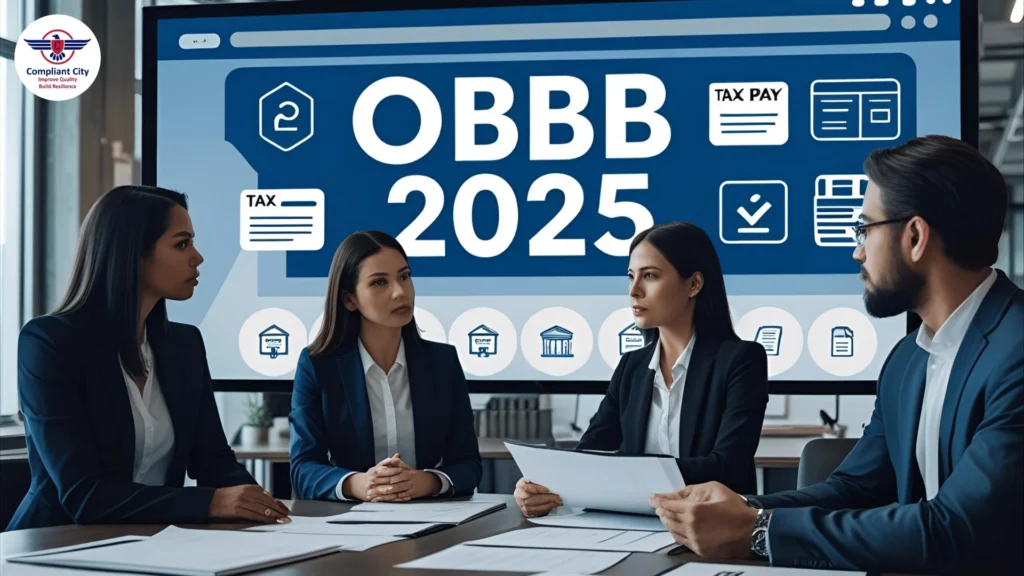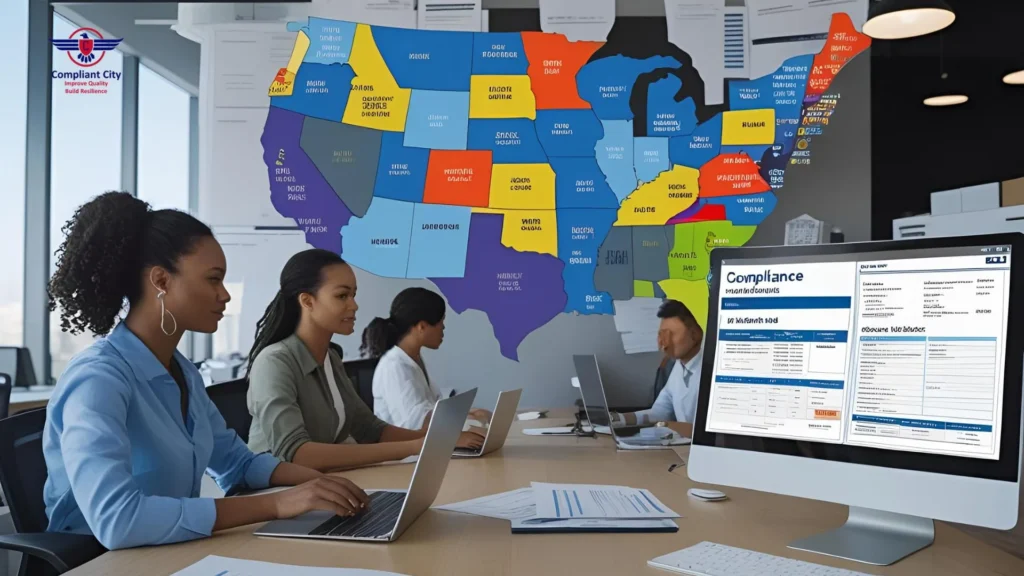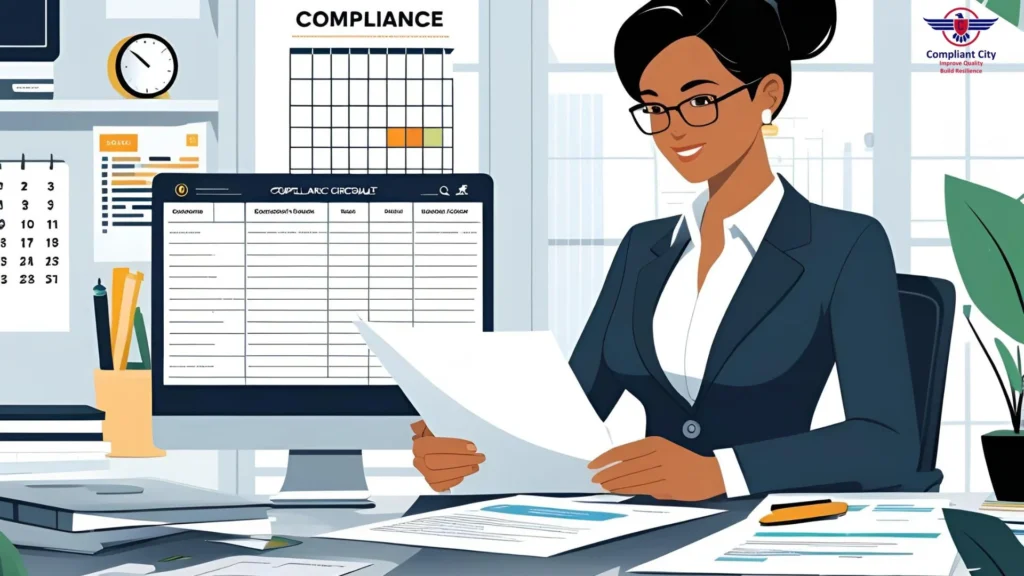The One Big Beautiful Bill (OBBB) was signed into law on July 4, 2025, ushering in some of the most significant changes in taxation, compliance, and employment regulations in recent years. HR, payroll, and compliance professionals will be impacted greatly by this tax reform bill, which is marketed as pro-worker, pro-business.
In this article, we’ll simplify the most important components of the One Big Beautiful Bill (OBBB) and explore what it means for payroll and HR compliance – as well as find out what you should be doing now.
What Is One Big Beautiful Bill (OBBB)?
In essence, this bill overhauls business and employee processes for wages, taxes, and compliance to be more efficient and effective.
Among other provisions, extending tax relief through One Big Beautiful Bill (OBBB) 2025 builds from the prior Tax Cuts and Jobs Act (“TCJA”) with such significant changes as:
- Repealing the federal income tax on tips and overtime wages
- Introducing updated employee classification rules
- Extending payroll tax credits to small businesses
- Changing tax brackets and raising the standard deduction
- New payroll and HR reporting requirements
The goal is to ease the tax burden and bolster labor-force participation, so employers will need to work with flexible staffing at their payroll systems, HR policies & employee documents, etc.
To dive deeper into how the One Big Beautiful Bill (OBBB) will impact your workplace policies, payroll processes, and compliance strategy, don’t miss our upcoming webinar:
👉 The One Big Beautiful Bill (OBBB) is Now the Law: How Will It Impact the Workplace?
This session will break down the real-world implications of the law and provide practical steps your team can take immediately to prepare.
Key Provisions of OBBB 2025 That Employers Need to Know
1. No Federal Tax on Overtime Pay, and the increased take-home pay will benefit millions
To begin with, One Big Beautiful Bill (OBBB) eliminates federal income tax on overtime wages and tips, one of the most talked-about changes. As a result, the increased take-home pay will benefit millions of Americans, particularly those who work in the service and hourly sectors.
What this means for you:
- Your payroll system must be updated to reflect these exemptions.
- A breakdown of gross wages into taxable and non-taxable earnings is important to be visible on the pay stubs.
- HR staffing professionals need to adjust pay practices and explain how their organisation will comply with the new law.
Please remember: This income is still liable for Social Security and Medicare (FICA) taxes unless there’s further guidance from the federal government.
2. W-2 vs. 1099: The New Classification Rules
Due to One Big Beautiful Bill (OBBB) updates, new standards will apply if a worker is W-2 or 1099 for purposes of classification. In addition to being more flexible, the new rules come with tougher documentation requirements.
To stay compliant, here’s what to keep in mind:
- Maintain a complete record, demonstrating that a contractor satisfies the new independence standards.
- Audits, fines, or legal action may result from misclassifying employees, especially in states such as California and New Jersey.
- Consider conducting a classification audit to align both federal and state laws.
These updates may help businesses tap into more flexible labor models, but come with a need for clear, compliant practices.
3. Small Business Payroll Tax Credits
In addition, a payroll tax credit can be claimed by smaller businesses that want to adjust to the One Big Beautiful Bill (OBBB) 2025 but have fewer than 100 employees.
These credits can help cover:
- Payroll software upgrades
- Compliance training
- Implementation of wage transparency policies
The federal government reimburses up to $5,000 per quarter for eligible employers.
Standard Deduction and Adjusted Brackets
The One Big Beautiful Bill (OBBB) 2025 changes, as a result, the federal income tax brackets and expand standard deductions that impact employees’ wages.
Therefore, for HR teams, this means:
- Updating W-4 forms
- Assisting staff to grasp its impact on their take-home pay
- Tax change communication at onboarding or year-end reviews
Multi-State Payroll: Added Complexity Ahead
One Big Beautiful Bill (OBBB) 2025 eases federal tax withholding — but introduces a new chaos for multistate businesses to manage.
Why does this matter? In many cases, state laws are not followed by the federal government, and many won’t follow them.
For example:
- The state will continue to tax tips as income and enforce strict classification rules for employees.
- New York will still require overtime income to be reported for state taxes.
- Texas and Florida may align more closely with federal changes, causing inconsistencies across state lines.
What you should do is:
- Customized payroll systems by state
- Create separate compliance reports for federal and state agencies.
- Consult with tax and legal experts in each state where you operate.
HR Compliance in 2025: Time for a Policy Overhaul
Given the sweeping changes, human resources departments should conduct a full compliance audit of policies, documentation, and training procedures to ensure compliance with One Big Beautiful Bill (OBBB) 2025.
Top priorities include:
- Update the Employee Handbook
- Include guidelines concerning non-taxable salaries.
- W-2 vs. 1099 classifications to be clearly defined
Training Your HR and Payroll Staff
- Review how tax-exempt income affects payroll processes.
- Educate teams on the new classification documentation requirements.
Refreshing Onboarding and Employment Forms
- Include updated wage structures and classification acknowledgment.s
- Communicate with employees.
- Provide webinars, handouts, or Q&A sessions on the new payroll and tax policy.s
Understand the Legal and Compliance Risks
Looking ahead, the IRS, DOL, and each state could give us more guidance on the One Big Beautiful Bill (OBBB) 2025 after it has been enacted. Employers should tread carefully through what is now a gray area until the definition of covered employment becomes clearer.
Risks to watch out for:
- Conflicts between federal and state wage laws
- Employee misclassification penalties
- Wage transparency or exemption disputes
To reduce your risk:
- Work closely with a tax attorney or compliance consultant
- Subscribe to IRS updates and compliance bulletins.
- Attend certified training through SHRM or HRCI.
Final Thoughts
Certainly, the product landscape has been crafted in HR/payroll and compliance, that One Big Beautiful Bill made. As it incentivizes, though, the Rule demands that businesses step up their game in documentation and training as well as coordination across states.
Ultimately, the best way to mitigate risk is through vigilance and early action.




